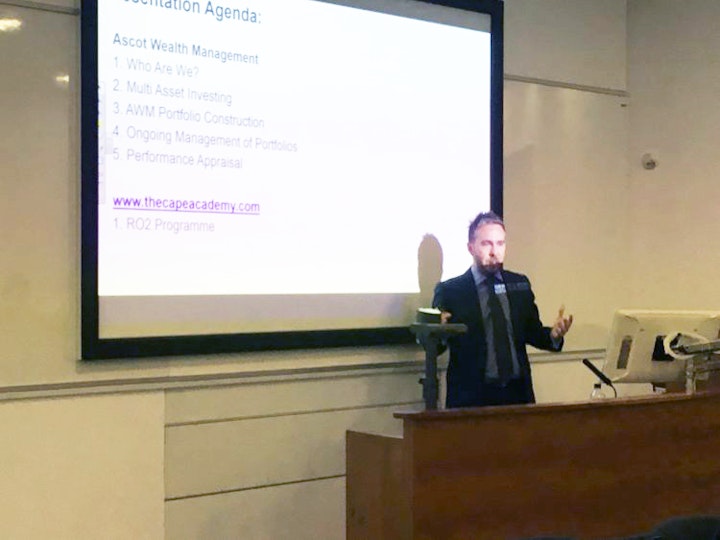Industry Insights: Asset Allocation in an Uncertain World
In this week's Industry Insights talk, Mark Insley, the founder and Managing Director of Ascot Wealth Management talked us through his firm's investment philosophy.

In this week's Industry Insights talk, Mark Insley, the founder and Managing Director of Ascot Wealth Management talked us through his firm's investment philosophy.

Mark was very clear that asset allocation, not stock selection, is the primary driver of returns in a portfolio, and that diversification is crucial to minimise risk. He was also very clear that for his clients - private individuals - there was no need to invest in complex, costly or excessively risky strategies. Instead AWM offer five different multi-asset portfolios to their clients, each with slightly differing risk and return profiles. Each portfolio is a mixture of active and passive (approximately 60:40) and they are invested for the long term, although they do occasionally make tactical or strategic shifts in the asset allocation to take advantage of opportunities that the investment committee identifies: recent examples include a successful tilt towards India, and a short term investment in Russia. The house view at AWM is that markets are mostly, but not always efficient and therefore excess returns can be captured when the opportunity arises.
To date the five portfolios have beaten their respective benchmarks, and performed in line with expectations (i.e. the higher risk portfolios have outperformed the lower risk ones!)

Mark also talked us through his new project - The Cape Academy. This project is all about qualifying younger people to be financial advisers and is based on Mark's experience of training up the youngest ever qualified UK adviser. This project will be piloted this year in conjunction with the ICMA Centre and promises to challenge the perception that financial advisers have to be older males in their 50s...
